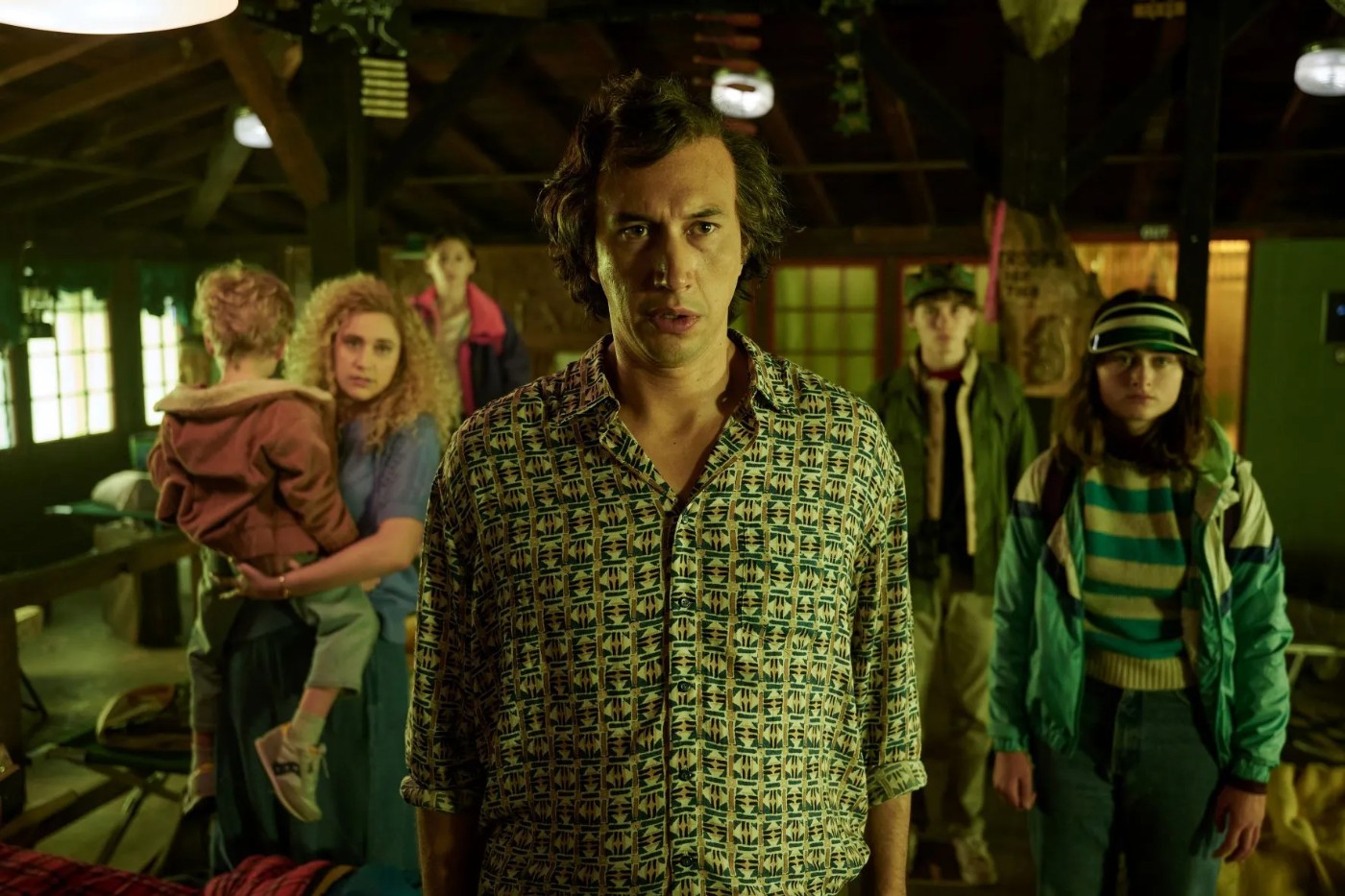Certain literary works feel destined for adaptation; with Don DeLillo’s postmodern classic White Noise, published in 1985, it was surely inevitable. Inevitable in the sense of it being a likely American cultural heritage project, brought into cinema after its reputation solidified instead of the Reagan years in which it takes place and was released. And in this particular case we’re reminded that claims it (and other postmodern novels) were unadaptable are rather synonymous with the potential financial risk of mounting them.
Even in light of their well-publicized financial troubles, Netflix is a platform where these heretofore unrealizable projects can find their home and wide global audience, insulated from having to perform well in theaters. Adapted from the novel and directed by urbane New Yorker Noah Baumbach, this is a half-successful swing for modish relevance and connoisseurship of the contemporary social zeitgeist, only truly uniting the text’s concerns with ours when it reaches DeLillo’s legendary Airborne Toxic Event, here enhanced to evoke the misinformation-led early-COVID era and its sudden disruption of everyday life.
Even though Baumbach faithfully renders its plot developments—and undeniably gets and doesn’t misinterpret this material—he falls into the error so many literary adapters by nervily veering away from its actual tone of voice. DeLillo’s exactingly measured and chilly prose is the very rhetorical address that makes the reader not just comprehend his ideas but feel them like a powerful transfer of radiation. Perhaps concerned about his film working well enough as a native cinematic experience, sundry themes—consumerism, coping with mortality—instead ring as the impotent spike protein of a weak virus (to use some imagery relevant to the text) and it recalls adult-driven ’80s Hollywood directors à la Jonathan Demme and Barry Levinson (you could even imagine Robin Williams in Driver’s part) rather than the icily perfect fusion David Cronenberg achieved in Cosmopolis.
Though he excises one of the novel’s best and most emblematic jokes (“the most photographed barn in America”), really everything known and hopefully loved from your likely twenty-something reading remains, the actors rigidly unfurling DeLillo’s dialogue and almost pausing theatrically so we can chuckle with recognition. Adam Driver, as focal character Jack Gladney—the pioneering “Hitler Studies” professor—isn’t at his most distinguished, harnessing cartoonish and flexible mannerisms less convincingly than his turn for Carax in Annette. For Greta Gerwig as his spouse Babette, she again incarnates a kind of ur-Gerwig: a heightened, focused rendering of her typical speaking tenor and comic timing. With pitch-perfect ’80s grooming—a blonde forest of curls evoking Michelle Pfeiffer and Meg Ryan from that era—the manner in which she delivers abstract disquisitions on the likes of sex, fulfillment, and mental distraction, temporarily turns White Noise into a “Gerwig” movie of the early 2010s, where her gifts and presence can’t be divided from the film’s achievement at large.
The lack of narrative drive is a feature rather than a bug, doing well to mimic the sense of the book as a digressive essay on American mores and pathologies. It’s hard to deny what we witness isn’t profoundly keyed into the features of American late capitalism and suburban sprawl: we glimpse all the consumerist addictions and constant intimations of environmental and technological danger as the country nurses its final decade of Cold War nuclear threat. Gladney is whisked from his existence as a thriving academic magus and campus star when his family is forced to evacuate their homes after a catastrophic spill of toxic waste. After a short, unverified outdoor exposure to this new fictional strain of waste, known as Nyodene D, his self-awareness of his own mortality starts to further dovetail with that of his depressed, troubled wife.
It feels condescending to brand Baumbach’s White Noise a “nice try,” considering how much the director has accomplished in the past, but it’s sadly quite accurate—if also more nuanced than calling it a failure or something that shouldn’t have been pursued. To know if White Noise would be a great film in addition to a great novel required attempting to make it, rather than it being dismissed by a producer or executive as implausible. And the director, fearlessly stretching out new areas of his craft, is a strong conduit for DeLillo’s still-unsettlingly vital ideas, even if he can’t broadcast them with the same pensive eloquence.
White Noise premiered at the Venice International Film Festival and will open in limited release on November 25 before hitting Netflix on December 30.

